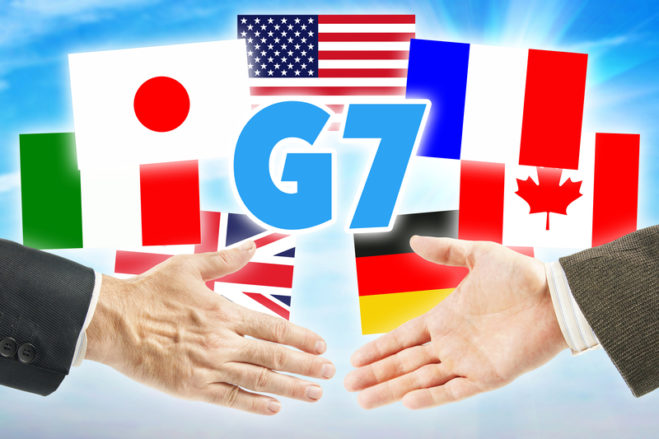
Those who see the Afghanistan debacle as a nail in coffin of trust of friends and allies in Joe Biden are being unnecessarily pessimistic. Unlike relationships of trust between two people, relations between States are based on need and expediency.
Biden’s allies at today’s virtual G 7 summit know and understand this. He let them down by abruptly withdrawing US troops and support personnel from Afghanistan but none of them had anticipated the astonishing collapse of the Afghan military and government.
If anything, the Taliban’s capture of full power in Kabul and the Afghan military’s entire stock of US-supplied weapons and aircraft is being seen as a failure of American and allied intelligence. The blame is shared.
But Biden is being blamed for not consulting with the allies and failing to negotiate a secure process with the Taliban for evacuating American and allied personnel, their Afghan collaborators and those who worked for western-funded humanitarian, education and civil society groups.
Biden has some tough explaining to do and will have to negotiate with the allies to repair fraying relationships. But they will stand by him because the US is indispensable to their security needs.
Regardless of criticisms being heaped upon Biden, no G7 government will fault him for deciding to save American lives after 20 years of thankless toil. He bit the bullet for all the allies in Afghanistan.
He has also sent a message from all allies that similar military interventions in other countries will not be open-ended. The US could terminate them at short notice if local military and government support is insufficient.
Trust among allies is a cherry on the cake but the base is transactional. A government does not come to another’s aid whether in peace or war without extracting gain for its people, or at least assurance of a later gain. Even formal Treaties are not honored decades later if each signatory no longer receives enough value from it.
Some allies like Britain’s Boris Johnson, France’s Emmanuel Macron and Germany’s Angela Merkel are hinting at building independent capacities to conduct military interventions without support from US logistics and intelligence. This is naïve and mostly hollow talk.
Whatever the virulence of criticisms over Afghanistan, European security policies center on countering Russian ambitions in Europe and China’s surge as a military, technological and economic great power. Europe is not powerful enough to face them without US support and even leadership.
Despite their attempts to shift fault on Biden, European elites cannot evade blame alongside American counterparts for the looming suffering of Afghans abandoned to the world’s most retrograde totalitarian theocracy.
This cession to the Taliban could be the blow that crushes Biden’s central ambition of standing up democracy as the axe that fells authoritarianism in China, Russia and worldwide.
It is notable that just 1.8 million Afghans out of nearly 8 million eligible voters went to the polls in the 2019 elections. President Ashraf Ghani, who fled the country before the Taliban entered Kabul, was an American puppet with negligible popular support.
Two decades of hubris were magnified by the mainstream US and UK print and TV media, which continues to assert that a chief cause for the Taliban’s easy victory was the profound corruption of Afghan elites.
This assertion is questionable. The US Special Inspector General for Afghanistan Reconstruction reported that 86% of the $946 billion invested in Afghanistan between 2001-2021 was spent on outlays for US troops, about 9% on the Afghan military, and the rest on drug interdiction programs and economic development.
Most of the development money went to “support counterterrorism; bolster national economies; and assist in the development of effective, accessible, and independent legal systems.”
Direct US spending to make civilian lives better was not large enough over 20 years for a credible accusation that Afghan elites skimmed off the top so cruelly that the Taliban became the lesser evil in people’s eyes.
In any case, the Taliban are not popular with the people. Covert agreements that allowed Taliban fighters to walk through provinces and take many important cities almost without bloodshed are already being broken.
Small protests have begun in many areas in the east, north and west and local warlords are reported to be rebuilding militias disbanded because of promises that American air power would keep them safe.
Photo 135503996 / G7 © Alexei Poselenov | Dreamstime.com
















